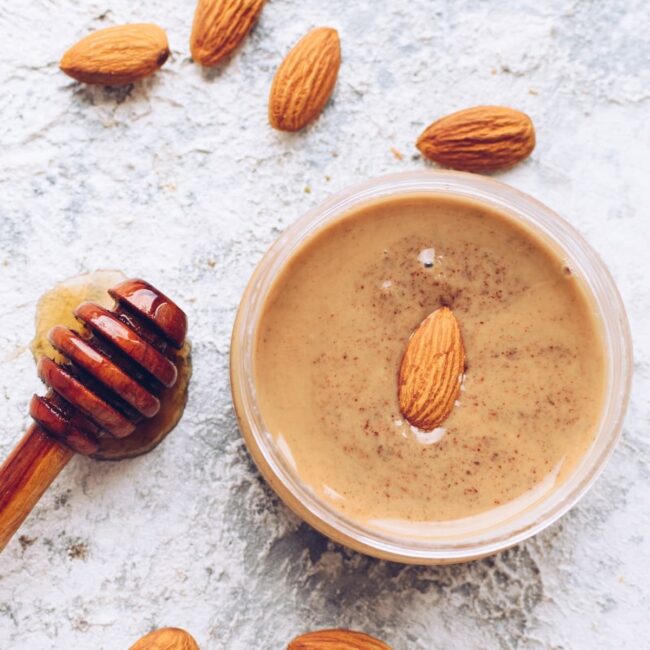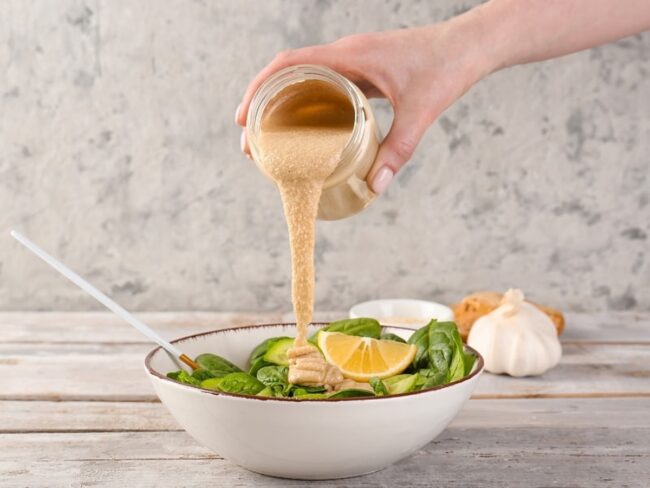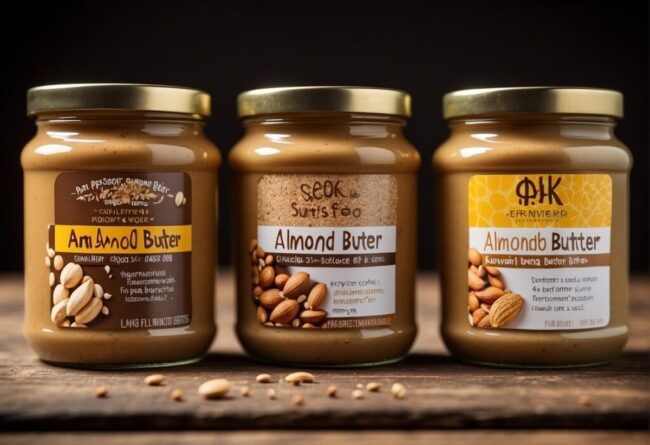3 Easy Alternatives to Peanut Butter that You Can Try
Peanut butter substitutes make it easy to enjoy the creamy richness of spreads without using peanuts.
Whether avoiding allergens or trying new flavors, different alternatives bring unique textures and tastes.
The right choice depends on how it's used, from baking to spreads to sauces.
A good substitute keeps snacks and recipes just as enjoyable.
Peanut Butter Alternative Types
Types of peanut butter substitutes provide creamy, nutty flavors for spreads and recipes. They work well for those with allergies or dietary restrictions.
Nut Butters
Nut butters provide an exciting alternative to traditional peanut butter, each bringing its own distinct qualities.
Almond butter offers a creamy texture and a mild flavor, along with benefits like fiber and magnesium.
Cashew butter's smooth consistency makes it versatile for many recipes, lending itself beautifully to both sweet and savory dishes.
Hazelnut butter stands out with its dessert-friendly profile reminiscent of Nutella, while pecan and walnut butters add earthy notes that complement various culinary creations.
Rarely encountered options like Brazil nut butter introduce unique flavors alongside rich nutrients such as selenium for those looking to diversify their pantry staples.
Seed Butters
Nut-free butters made from seeds present an excellent alternative for those with allergies, delivering a satisfying creaminess.
Sunflower seed butter shines as a popular choice, known for its rich flavor and smooth texture.
Tahini stands out with its savory notes, making it suitable for both sweet treats and savory dishes alike.
Pumpkin seed butter offers a more unique taste profile while providing essential minerals like zinc.
These butters can elevate your spreads, dips, or dressings to new heights without the worry of nut allergens in every bite.
Nut-Free Substitutes
Avoiding nuts and seeds opens up a world of delicious alternatives.
Soy nut butter resembles peanut butter in texture but has its own unique nutritional benefits, making it an excellent choice for spreads.
Pea butter offers a creamy consistency derived from yellow peas, perfect for those looking for something different yet familiar.
Chickpea butter showcases the versatility of legumes with its rich creaminess that works well in dips or on sandwiches.
Coconut butter adds a tropical flair to any dish, enriching flavors with sweetness while remaining allergen-friendly and versatile across various recipes.
Health Benefits of This Ingredient
This ingredient provides essential nutrients, including vitamins, minerals, and antioxidants. It supports overall health and contributes to a balanced diet.
Proteins and Fats
Peanut butter alternatives offer a treasure trove of nutrition.
Almond butter stands out with its impressive protein content, boasting around 7 grams per serving while delivering healthy fats that support heart wellness.
Sunflower seed butter serves as an excellent choice for individuals avoiding nuts, providing similar protein levels and a blend of beneficial fats that contribute to overall health.
These options not only enhance your meals but also help maintain balanced cholesterol and stable blood sugar levels.
Exploring these spreads can elevate your diet in delightful ways while ensuring you receive essential nutrients every day.
Vitamins and Nutrients
Alternative butters offer a rich source of essential vitamins and minerals beneficial for overall health.
Many varieties are packed with vitamin E, which acts as a powerful antioxidant to safeguard your cells from oxidative stress.
Magnesium plays an important role in maintaining strong bones and supporting energy levels, making it vital for daily functioning.
Cashew butter stands out due to its higher iron content, promoting healthy oxygen transport throughout the body.
Choosing almond butter can provide you with extra magnesium and vitamin E compared to traditional peanut butter options; this makes it a smart addition to your diet if you're looking for nutritious spreads that enhance well-being.
Calories in Food
Almond butter serves as a popular alternative to peanut butter, often containing fewer calories per serving.
The typical caloric value for peanut butter hovers around 200 calories for two tablespoons.
Brand variations and added ingredients can significantly influence the final calorie count of these spreads.
Nutrition labels provide crucial insights, guiding you toward options that align with your dietary goals.
Making informed choices about these substitutes ensures they complement your lifestyle effectively.
Allergy Factors to Think About
Nut-free alternatives provide essential options for individuals with nut allergies.
Sunflower seed butter shines as a top choice, packed with fiber and lower in saturated fat compared to traditional nut butters.
Exploring variations like soy nut, pumpkin seed, and hemp seed butters introduces new flavors and nutrients into meals.
These spreads ensure safety while encouraging a broader range of nutrients in daily diets.
Choosing these options can enhance your culinary experience while keeping health at the forefront.
Cooking with This Ingredient
Cooking with this ingredient enhances both flavor and texture in dishes. Its versatility makes it suitable for grilling, baking, and frying.
Making Baked Goods
Granola butter adds a delightful twist to your favorite baked goods.
This ingredient infuses cookies and cakes with moisture while delivering a hint of sweetness that elevates flavors.
Soy nut butter stands out when searching for a nutty essence, mimicking the creamy texture of peanut butter effortlessly.
Both options create new opportunities to experiment in the kitchen, inviting creativity into traditional recipes.
Why not try incorporating these ingredients into your next baking adventure?
Food Preparation
Tahini stands out as a versatile ingredient that enhances many savory dishes.
Its nutty flavor adds depth without overwhelming other tastes, making it a great choice for sauces and dressings.
Red pepper puree introduces a vibrant splash of color while infusing dishes with a subtle sweetness.
This puree works wonders in both sauces and vegetable stir-fries, elevating the overall presentation and taste.
Experimenting with these ingredients can lead to exciting culinary discoveries that surprise your palate every time you cook.
Spreads and Toppings Options
A good spread can elevate any simple snack into something special.
Soy nut butter delivers a creamy texture that feels satisfying on toast or crackers, providing an enjoyable experience without the heaviness of traditional options.
Cookie butter introduces a delightful sweetness with hints of spices, perfect for those who crave something different.
Both choices cater to various dietary preferences while keeping taste at the forefront.
Next time you reach for a snack, consider these alternatives to add excitement and flavor to your routine.
Food and Treats
Substitutes like tahini and granola butter open up exciting avenues in your kitchen.
These ingredients add a creamy texture that elevates smoothies, making them irresistibly smooth.
Dipping fresh fruits or crunchy vegetables into these spreads offers a nutritious twist to snacking habits.
Salad dressings transform into something special with just a spoonful of tahini, enhancing flavors and adding depth.
Lunchtime becomes more satisfying when you spread your favorite alternative on warm pitas or swirl it through oatmeal for an extra boost of flavor and nutrition.



